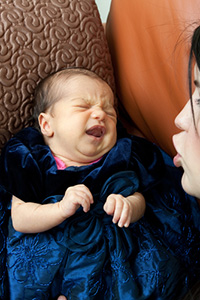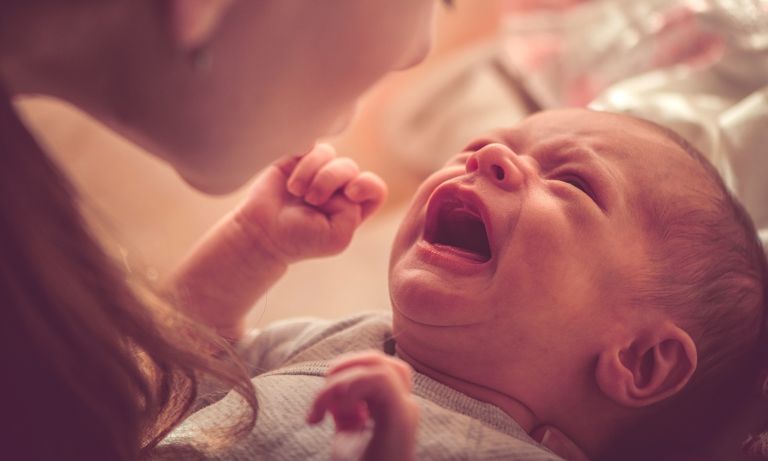
If you suffer from crying colic, you may be wondering what might be causing it. Colic can cause babies to cry for a variety of reasons, but it is most commonly caused by food allergies or eczema in adults.
Your baby's diet is very important for a healthy baby, so your veterinarian can help you determine if your baby is allergic to certain foods. If you suspect this is the case, there are many foods you can add to your baby's diet to help prevent colic and crying. Foods that cause colic in babies are wheat, soy, eggs and milk.
It's always a good idea to check with your veterinarian to find out which foods to avoid with your baby. These are foods that are known to cause allergies in some animals. These foods should never be added to your child's diet. The best thing to do if you have any doubts about your child's diet is to take him or her to the vet and get tested.
Eczema and wheat intolerance are also known causes of colic and crying in babies. Eczema in dogs and cats is treated the same way, but in children, doctors may treat them with a special cream that is not available to humans.
Many times doctors will prescribe a special type of medicine for colicky babies cry because it has been shown that the medicine is effective in calming and soothing the irritated skin of the baby. You should always ask your vet about any medications that you may be given. It is always a good idea to keep a log of your baby's medications and monitor any changes in his or her symptoms. This can help you determine the best course of action for your child.

Another good way to help your child with colicky crying is to have him or her spend more time with his mother or other members of the family
Often the cause of colicky crying in infants is a disruption in the baby's bonding with his or her mom. Spending some time with the baby can help the bonding between the mother and the baby to heal and can often reduce the length of time the colicky crying in infants lasts. Your vet may be able to help you decide if bonding time with the mother is a good idea.
Once you've determined the cause of your child's colicky crying, you should start a treatment plan based on that information to avoid problems in the future. A good diet with plenty of food that is known to reduce colicky crying in babies is an important first step towards stopping it. In addition to the diet, you will want to make sure that your baby is eating at the right time. The baby should have a formula every six to eight hours and should be eating two hours before bedtime, if at all possible.
It is also recommended that your baby start using a bottle or pacifier until he or she is ready to eat solid food. As long as the mother's milk is still present, it is important to try to use only pure, natural breast milk, as too much of synthetic products may result in your baby experiencing colicky crying.
If there is no medical problem causing your baby's colicky crying, a change in diet may be needed. Try to find a good diet that is high in protein and includes a lot of fresh fruit and vegetables. There are foods like chicken and fish that are very low in calories but are good sources of protein, especially if you feed your baby cow's milk. For people who are lactose intolerant, it is best to stay away from cow's milk since this milk is full of lactose, which is what causes the symptoms associated with the illness.
If your baby is older, a change in his or her diet may be necessary, but there may still be no underlying medical cause for the colicky crying. In this case, it is important to seek advice from your vet so that you can find a proper diet to make sure that your baby's body is getting all of the nutrients it needs. Since colicky crying in older babies is usually caused by digestive problems, your vet may be able to suggest an elimination diet plan that will help your baby get back into the correct balance of hormones and other nutrients that your body was lacking when he or she was younger. If you have any questions, be sure to bring the vet along during your baby's initial visit.
No matter what your baby's colic problem, if it continues long enough it is important to keep trying to find ways to treat the problem. If you notice that there is a pattern of continued crying, you should seek the help of your vet. Your vet may be able to identify the cause of the problem and suggest a change in diet or even surgery to eliminate it.